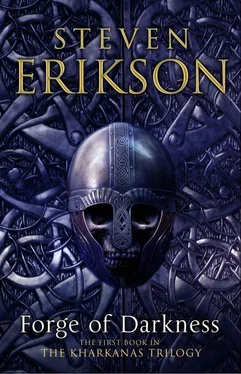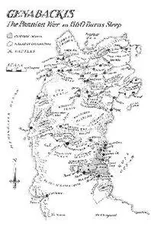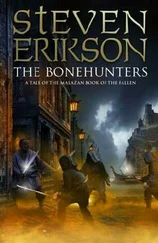Steven Erikson - Forge of Darkness
Здесь есть возможность читать онлайн «Steven Erikson - Forge of Darkness» весь текст электронной книги совершенно бесплатно (целиком полную версию без сокращений). В некоторых случаях можно слушать аудио, скачать через торрент в формате fb2 и присутствует краткое содержание. Жанр: Фэнтези, на английском языке. Описание произведения, (предисловие) а так же отзывы посетителей доступны на портале библиотеки ЛибКат.
- Название:Forge of Darkness
- Автор:
- Жанр:
- Год:неизвестен
- ISBN:нет данных
- Рейтинг книги:3 / 5. Голосов: 1
-
Избранное:Добавить в избранное
- Отзывы:
-
Ваша оценка:
- 60
- 1
- 2
- 3
- 4
- 5
Forge of Darkness: краткое содержание, описание и аннотация
Предлагаем к чтению аннотацию, описание, краткое содержание или предисловие (зависит от того, что написал сам автор книги «Forge of Darkness»). Если вы не нашли необходимую информацию о книге — напишите в комментариях, мы постараемся отыскать её.
Forge of Darkness — читать онлайн бесплатно полную книгу (весь текст) целиком
Ниже представлен текст книги, разбитый по страницам. Система сохранения места последней прочитанной страницы, позволяет с удобством читать онлайн бесплатно книгу «Forge of Darkness», без необходимости каждый раз заново искать на чём Вы остановились. Поставьте закладку, и сможете в любой момент перейти на страницу, на которой закончили чтение.
Интервал:
Закладка:
Glancing down at it, Cedorpul made a disgusted sound. ‘Worms. We’ll have to do something about that, I think.’
In the absence of light and in the death of every colour, draining his imagination and the scenes it desperately conjured, Kadaspala sat alone in the room he had been given. It was not a large room. With hands groping and feet shuffling he had explored its confines, and in his mind he painted its details in shades of black and grey: the cot where he lay down at night, which creaked with his restless turning, the rope netting of its mattress stretched and sagging beneath him; the quaint writing desk with its angled surface, ink wells and footpad; the water closet with its narrow, flimsy door and the latch that rattled loose in its fittings; the long side table that ran the length of one wall, where rested jugs and goblets of copper that stung the tongue harsher than the wine filling his mouth; the wardrobe with its weathered surface. They seemed, one and all, the leavings of a past life, and he thought of this room as a tomb, artfully arrayed to honour the memory of living, but shrouded in eternal darkness, in air that tasted dead.
There were few memories of the journey down to Kharkanas. They had taken his knife, and since leaving him here, after a cadre of healers arrived to fret and sigh, his only visitors were servants coming with food and later departing with the servings barely touched. One, a young woman by her voice, had offered to bathe him, and he had laughed at that, too empty to regret the cruelty of the sound, and the fleeing pad of her feet to the door had simply made him laugh all the harder.
In a world without tears, an artist was left with nothing to do and no purpose to hold on to. Anguish was a satisfying torment to feed creative impulses, but he felt no anguish. Longing that spoke no known language offered up an endless palette, but he longed for nothing. Wonder made the brush tremble, but all wonder was dead within him. He had been betrayed by every talent sewn into his sinews, scratched into his bones, and now that he had severed the threads to vision, he shared this darkness with lifeless gods, and this room was indeed a tomb, as befitted its occupant.
He sat upon the cot, painting the air with one finger, brushing lines of black knotted with touches of grey to give shape to the creaking of the ropes under him. There was little talent in perfect rendition. Setting banal reality upon a board or canvas made sordid the modest virtue of craft; as if perfect brush-strokes and obsessive detail could exist as something beyond technical prowess, and could in fact announce profundity. He knew otherwise and it was this contempt that sat like swirling ripples marking the surface of his dissolution, turgid but hinting of life.
In the world he had left behind, an artist needed to tie contempt down and make the bindings tight, and take damp cloth to where it bled through. To let it loose was to attack both artist and audience, and he had neither the strength nor the will for such a thing: even the sentiment left him exhausted.
He had descended into madness, there in the chamber of the house his memory dared not revisit. He was not yet certain that it had departed. Blindness made a mystery of everything just out of reach. He had decided to wait, and upon the only canvas left to him paint sounds upon the ephemeral walls of this crypt: the creaks and faint echoes; the muted slap from people passing by the door, those footsteps so urgent and so pathetic; the dull repetition of his own breath and the sullen thump of his heart; the languid surge and ebb of the blood in his veins.
All in shades of black and grey, upon the insubstantial but exquisitely absolute walls of his blindness.
Once he was done, perfectly rendering this chamber, he would reach outside, to wander the corridors, recording everything. There is a new history coming, my friends. History as seen by a blind man. I will find Rise Herat, who gives us his delicious version as told by a man who says nothing. I will find Gallan, who sings unheard and walks unseen by any. Together, we will set out to find our audience, who heeds us not. And by this, we perfect the world and raise for posterity every grand monument to stupidity.
I see towers and spires. I see bold bridges and the palaces of the privileged. I see forests where the highborn hunt, and where poachers are hanged by their necks beneath trees. I see jewels and stacked coins inside guarded fortresses and upon the walls stand earnest orators, crying down the paucity of all. I see their lies catch up to them, in flames and vengeance. I see a future laden with ash and soot-coated pools, and gibbets groaning. And all that I see, I will paint.
And all the historian would not say, keeps him mute.
And the weeping poet will walk away, to hide his absence of tears.
And everything ends.
He heard himself laugh, a low cackling sound, and quickly etched its wavy, juddering lines with his finger. The streaks hung there in the darkness, slowly fading as the echoes dwindled.
The blind man paints history. The voiceless historian mimes the tale. The poet dispenses with music, dancing in discord. There is no rhythm to these brush-strokes. There is no beginning and no end to this tale. There is no beauty in the song.
And this is how it is.
My friends, this is how it is.
At the Citadel gate Hish Tulla and Gripp Galas found three of Anomander’s officers awaiting their lord. Kellaras, Dathenar and Prazek were girded as for battle, and as Gripp went to collect Anomander’s horse from the stables Hish Tulla waited a few paces away from the Houseblades.
There was no conversation under way. Of the three, only Kellaras bore the ebon hues that were a legacy of his time in the Chamber of Night, and it seemed that this had made a tension among the three, as if loyalty itself was perhaps no thicker than skin.
Gripp returned with Anomander’s mount and his own. ‘Both had been left saddled,’ he said to her in explanation.
‘Distress is a flavour,’ Hish said, ‘that none welcome but none can avoid.’
At her comment, Dathenar grunted in amusement. ‘Wail for the world’s end, milady, when even the grooms lose sleep.’ He gestured grandly. ‘Observe our befuddled state in this courtyard, and imagine the same throughout Kurald Galain. I have had many thoughts on civil war in the times leading to this, but not once did I imagine it so shrouded in confusion.’
‘It is the failure of certainty that has you reaching for the sword at your side,’ Hish replied. ‘We all strike out from a place of fear.’
Before Dathenar could answer, Lord Anomander appeared in the doorway of the Citadel and strode towards them, unconsciously cleaving a path through the disordered ranks in the compound. Arriving, he reached for the reins of his horse.
‘Captains,’ he said, addressing his Houseblades, ‘ride now, south to the Hust Legion. Accompany it on its march to Kharkanas. Request of Commander Toras Redone to make encampment upon the north side of the city, and see to the Legion’s provisioning.’
Hish watched as the three men mounted up. They departed without another word.
‘Now, Gripp-’
‘I wish a word with you,’ Hish cut in.
Anomander hesitated, and then sighed. ‘Very well. I intend no rudeness, Lady Hish, but I seek to find Andarist, and so cannot measure the length of my absence from Kharkanas. This invites impatience.’
‘And the fear of being alone, too, it seems, Lord Anomander.’
He frowned.
‘Gripp spoke to you of his desire to be with me, and you refused him. I have never asked anything from you, Lord Anomander, until this moment. Here I stand, pleading. Has he not done enough for you? Has he not given enough of his life in your service?’
Читать дальшеИнтервал:
Закладка:
Похожие книги на «Forge of Darkness»
Представляем Вашему вниманию похожие книги на «Forge of Darkness» списком для выбора. Мы отобрали схожую по названию и смыслу литературу в надежде предоставить читателям больше вариантов отыскать новые, интересные, ещё непрочитанные произведения.
Обсуждение, отзывы о книге «Forge of Darkness» и просто собственные мнения читателей. Оставьте ваши комментарии, напишите, что Вы думаете о произведении, его смысле или главных героях. Укажите что конкретно понравилось, а что нет, и почему Вы так считаете.












